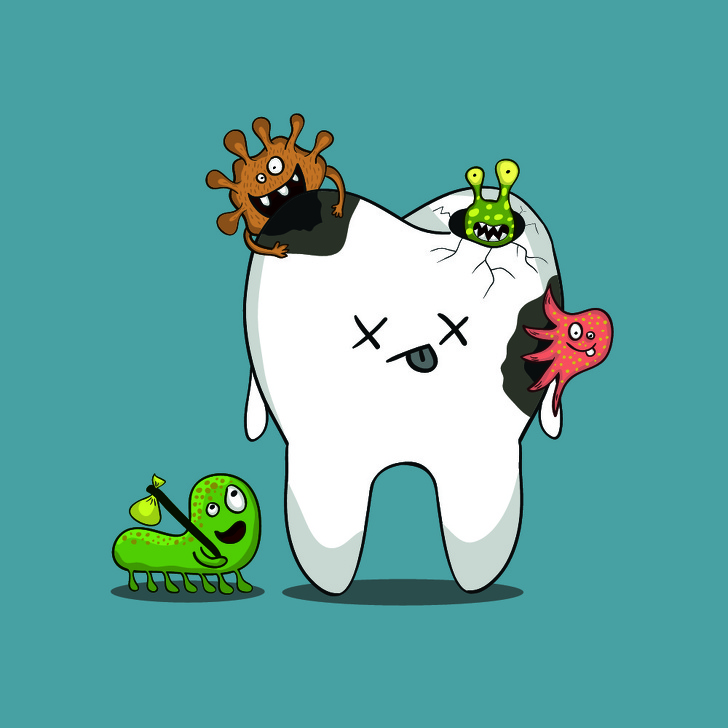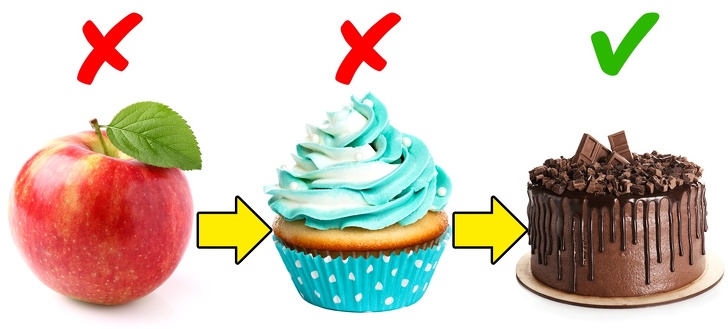Sugar is good and everything it contains is even better! The sweet crystalline carbohydrate seems to be everywhere. Many of us love to insist on the unforgettable taste of our favorite desserts when we are hungry.
However, what may seem an innocent pleasure is really the reason for many complicated health problems when we consume it in large quantities. Today, sugar is hard to avoid, but many of us don’t even realize how addicted we are.
We have gathered several warning signs provided by your body, indicating that it is time to get away from sweet things.
Negative Effects Of Too Much Sugar Consumption
1. Muscle And Joint Pain

Do you feel you skip regular walks, gardening, or golf because you have pain? It can be one of the many signs your body uses to warn you about the inflammatory processes that occur inside.
High amounts of sugar in your diet cause immune cells to secrete inflammatory messengers in your blood, which try to break down the end products of advanced glycation, or proteins bound to a glucose molecule.
The more sugar you eat, the more glycation end products will appear, which will cause more inflammatory messengers to be sent to disrupt the cycle. This cascade of biochemical reactions can cause arthritis, cataracts, heart disease, lack of memory, or wrinkled skin.
2. Craving Sweets And Other Sugary Foods

The sugar is processed very fast, which makes you hungry, even though you swallowed a cookie just an hour ago. In fact, it is known that sugar releases dopamine, similar to what you would feel when using addictive drugs.
The neurotransmitter dopamine is released by neurons in this system in response to a rewarding event. This particular chemical is most famous for keeping us in a good mood.
The brain sees sugar as a reward or treatment and the more sugar you eat, the more your body wants it. It is a vicious and addictive cycle. In addition, sugar-rich foods will not make you feel satisfied since they do not contain useful nutrients.
3. High And Low Energies

Glucose is responsible for the energy supply in your body, so it is very important to keep your blood sugar level at an adequate level. Any deviation from this can lead to yo-yo-ing throughout the day.
When you eat sweets, the pancreas releases insulin to help glucose enter your cells, leaving it with a surge of energy. When the cycle ends, you feel that your energy level drops, because your body wants more sugar.
To maintain your energy levels, avoid eating unhealthy sweets and snacks. Instead, opt for lean proteins and healthy fats. Get “real” energy for your body from healthy foods. This more uniform level of blood sugar will not cause spikes and power outages.
4. Constant Skin Leaks
Foods containing added sugar cause insulin levels to increase and initiate the process of glycation or binding of sugar to protein molecules. As soon as glucose enters the blood, a series of complicated physiological processes that can cause inflammation and skin problems to begin.
This increase in insulin can eventually increase the activity of the sebaceous glands in the skin and activate inflammatory processes.
This means that a diet high in sugar is associated with an increased risk of acne breakouts. If your unruly skin bothers you and none of the medical treatments seem to help, try changing your eating habits.
We do not insist on eliminating sugar from your life completely, but you can consume less food that contains added sugar.
5. Weight Gain

It is never a pleasant surprise to discover that your jeans are tighter at the waist. You never expected that a chocolate cake you ate a week ago could backfire in such nasty way! However, one of the most obvious signs of exaggerating sugar is gaining weight.
Snacks and sweets usually store pounds in your belly. A high level of sugar increases the production of insulin that stores excess fat in the abdomen, rather than elsewhere.
6. Tooth Decay

Sweet foods undoubtedly promote the formation of cavities and tooth decay. However, it is not sugar that causes teeth rot, but the remains of food left in the teeth after eating.
If it is not digested or brushed properly, food debris causes plaque to appear on the teeth. The hard surface of a tooth is eroded, resulting in small holes.
Different sugary foods, such as sweets, dried cereals, and breath mints, can get caught between the teeth, where they are difficult to reach, which speeds up the decay process.
Maintaining proper oral hygiene can save you from regular appointments with the dentist.
7. A High Sugar Tolerance

When you eat a lot of candy every day, your taste buds get used to the same level of sweetness and may not respond to it as they used to. Too much sugar dulls your taste buds and sweet fruits and berries are not as sweet to you as they should be.
Believe me, there is nothing better than eating a juicy apple and enjoying its flavor. If nothing seems pleasant, reduce your consumption of additional sugary additives, such as refined sugar and sweet syrups, and switch to a well-balanced diet.
How Much Sugar Should We Consume Each Day?

According to the World Health Organization, the recommended dose of sugar should be less than 10% of your daily energy consumption. That 10% daily is equivalent to 7 teaspoons of added sugar.
Sugar is undoubtedly tasty and we all love it, but eating too much can have harmful consequences. In fact, only 4 g of carbohydrates = 1 teaspoon of sugar in your body.
Be careful of the signs mentioned above and try to reduce your daily sugar intake. Find sugar in natural products such as fruits, vegetables, nuts or cereals.
Do you think having a sweet tooth is worth it? Share your opinion with us in the comments!


